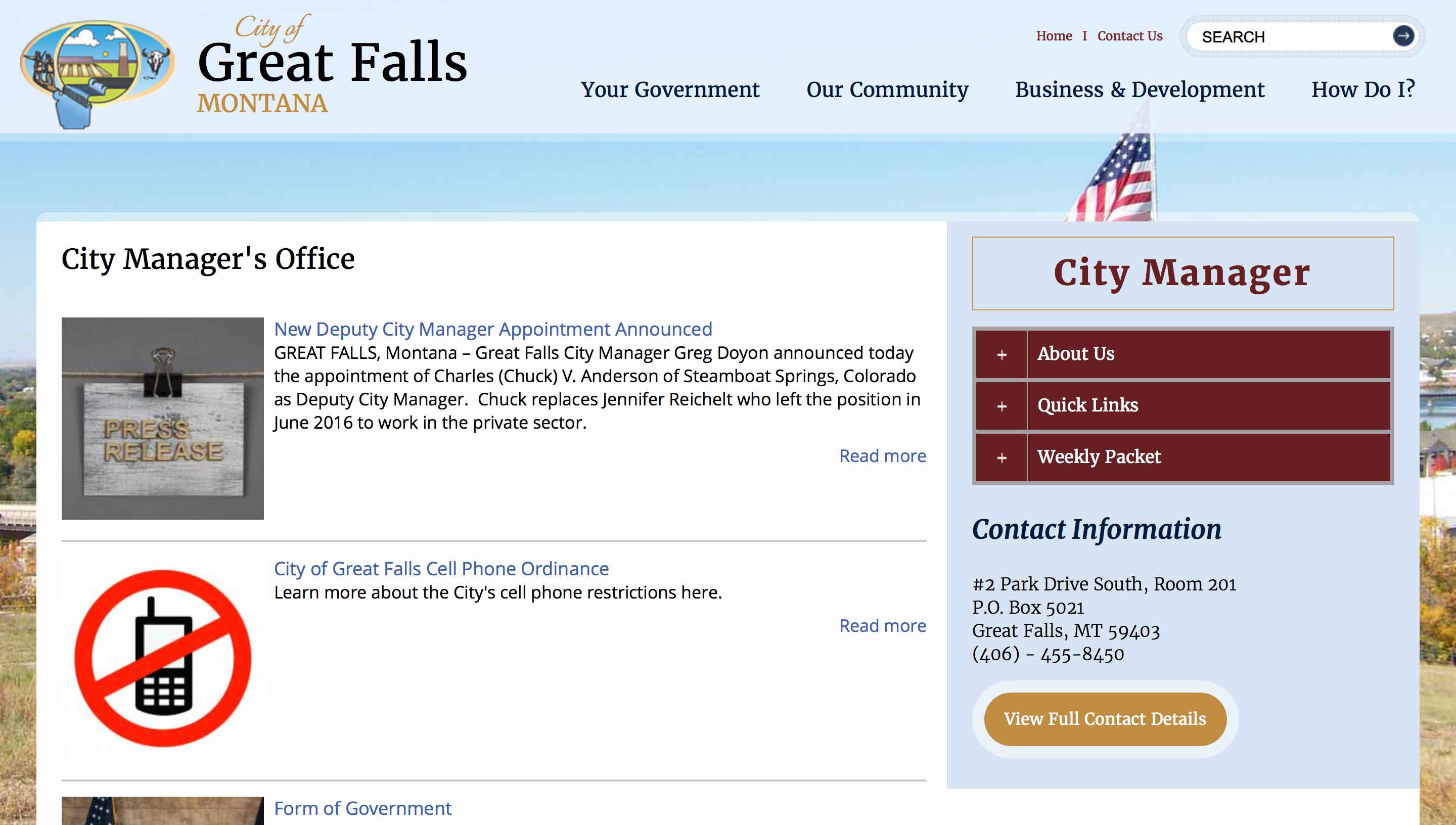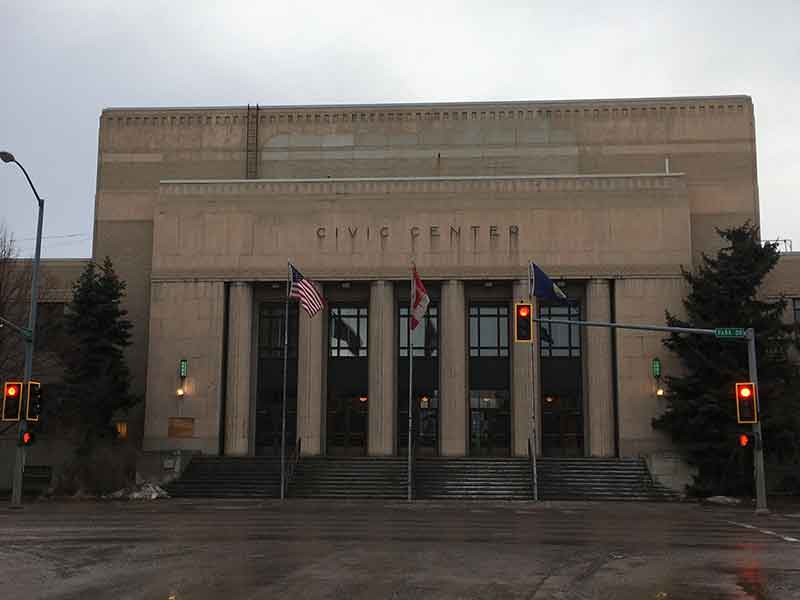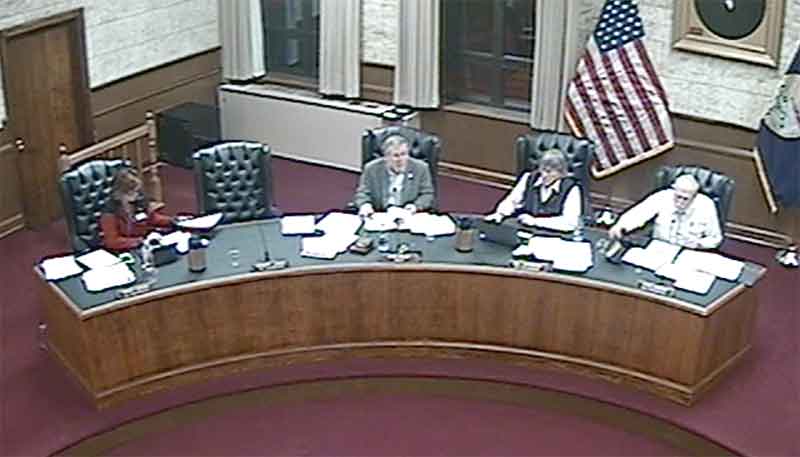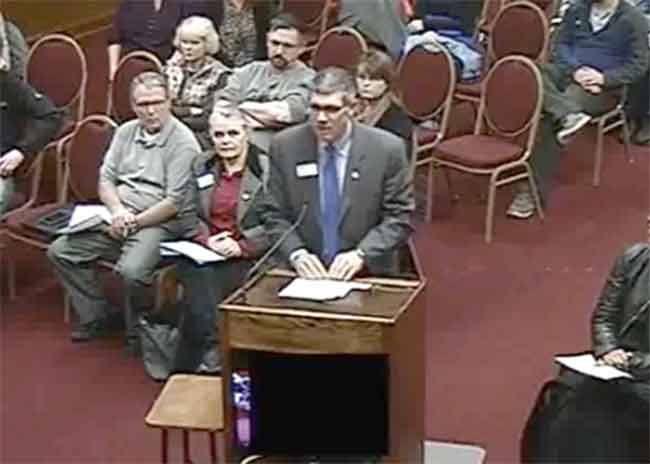Have you seen the City of Great Falls’ new website? It’s very well done, and is for the most part a user-friendly hub of relevant information. In addition to the City directory and meeting minutes, there is also the City Manager’s Weekly Packet. While not strictly released on a weekly basis, the latest installment contains some awfully interesting items,…
Category: City Commission
ICYMI
I thought the following comment on the City Commission post, below, was worth elevating: Don I would agree with you. I was there last night, I’ve been researching this and I think the city’s got something up their sleeves. Ordinance 4138 is far too inclusive. So is Ordinance 3149. There’s more to come too, with…
Interesting New Rules In Play After Last Night’s City Commission Meeting
The City of Great Falls delivered a hat trick of ordinances last night, with the passage of Ordinances 3148, 3149, and 3153 — all of which were opposed by Commission-goers but adopted unanimously by the Commissioners. This before Assistant City Attorney Joe Cik at one point amusingly referred to himself as “some sort of medieval person on an epic quest” to clean…
Brett Doney Said What?!
Phil Faccenda made reference to it in his very good piece yesterday, and we have received a number of tips about it recently… but we’re still grappling with some of the comments made by Great Falls’ economic development chief, Brett Doney, at the Jan. 3 City Commission meeting. Most glaringly, Doney said that Great Falls lost “707 net jobs” in…
On Calumet: Red Lobster Or Red Herring?
Ask your average person on the street what they would like to see relative to economic development in Great Falls and there is a good chance they would say, “Red Lobster.” Then ask them if they would rather see a Red Lobster, or an expansion of the Calumet Refinery, and again they would probably answer,…
Gregg Smith And Rick Tryon Discuss The State Of Great Falls
Recently, the Tribune’s Peter Johnson wrote about Great Falls’ building boom; 2016 was the City’s strongest year for development since 2008. A lot of folks agree with the notion that Great Falls is on the uptick, while others point to a lack of good-paying jobs, low population growth, and drug abuse as significant community problems. We…
Tribune, Bronson To Legislature: Just Trust Us
The Great Falls Tribune got its smarm on today in dissing Rep. Jeremy Trebas: Somebody might want to pick up the phone and remind Jeremy Trebas that as a Republican, he’s supposed to be for small government and local control. This type of rhetoric is always rich. The Trib’s editors are not Republicans. They’re just happy…
Will Patrella’s Successor Embrace The Park And Rec Master Plan?
In November, 2016, the City Commission voted unanimously to adopt the Park and Rec Master Plan. Less than two months later (and not because of this), Director Joe Patrella resigned his position for a job in Arizona. With the search to succeed Patrella still ongoing, important questions persist for the City, and for its taxpayers. The Master Plan,…









